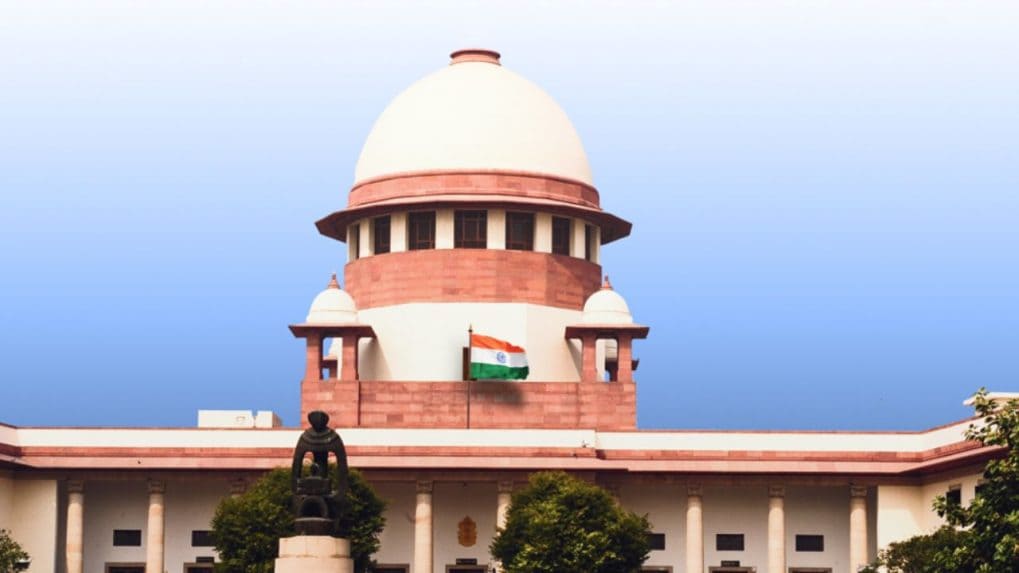Advertising
Co-lead or crown? Tussle for Omnicom–IPG leadership race in India heats up

The Supreme Court of India is set to hear a public interest litigation (PIL) on Friday, October 17, 2025, filed by the Centre for Accountability and Systemic Change (CASC), which seeks directions to the Union Government to prohibit online gambling and betting platforms allegedly operating under the guise of social and esports games.
A bench comprising Chief Justice B.R. Gavai and Justice K. Vinod Chandran on Thursday acknowledged submissions made by lawyer Virag Gupta, representing CASC, and agreed to take up the PIL on October 17.
The PIL requests directions to multiple Union ministries, including Electronics and Information Technology, Information and Broadcasting, Finance, and Youth Affairs and Sports, to interpret the provisions of the newly enacted Promotion and Regulation of Online Gaming Act, 2025, alongside state laws, in a manner that prohibits online gambling and betting games masquerading as social and esports platforms.
The petition, filed on October 13 through advocates Virag Gupta and Rupali Panwar, names six respondents: the four Union ministries mentioned above, along with the leading app store operators Apple Inc. and Google India Pvt. Ltd. CASC, represented by former Uttar Pradesh DGP Vikram Singh and Shourya Tiwari, has urged the Supreme Court to direct the government to curb the proliferation of betting and gambling applications, which they claim are causing extensive social and economic harm across India.
According to the PIL, betting and gambling are considered illegal in the majority of Indian states. It cites reports indicating that over 65 crore Indians are engaged in such games, generating annual revenues exceeding ₹1.8 lakh crore for these platforms. CASC highlighted that nearly half of India’s population participates in online gaming, adversely affecting society, the economy, and national security. The PIL further points to the objectives of the Promotion and Regulation of Online Gaming Act, 2025, noting that the legislation was introduced to safeguard public welfare and mitigate the escalating harms associated with online betting and gambling.
The petition describes the rapid expansion of online gaming as a “national crisis,” citing its links to financial distress, mental health issues, and even suicides. It seeks a nationwide ban on online gambling and betting platforms disguised as esports or social games. Additionally, it requests the Supreme Court to issue blocking orders under Section 69A of the IT Act against all unlawful betting websites and applications.
The PIL also calls for directives to the Reserve Bank of India (RBI), National Payments Corporation of India (NPCI), and UPI platforms to prevent financial transactions involving unregistered gaming applications. Furthermore, it demands investigation into offshore gaming companies through agencies such as Interpol, the Central Bureau of Investigation (CBI), and the Enforcement Directorate (ED), estimating over ₹2 lakh crore in unpaid taxes. The plea also seeks measures to protect data of minors already collected by online gaming companies.
Highlighting the social ramifications, the PIL noted that prominent cricketers and film stars endorsing such games are contributing to cyber frauds, addiction, mental health disorders, and suicides. Citing statements by the Union IT Minister, the petition emphasizes that the opaque algorithms used in these games make it difficult to trace transactions, facilitating money laundering and fraudulent practices.
The Supreme Court hearing on October 17 will determine whether the government should be directed to implement stringent measures to curb the proliferation of online gambling platforms under the guise of gaming.
According to LinkedIn’s research with over 1,700 B2B tech buyers, video storytelling has emerged as the most trusted, engaging, and effective format for B2B marketers. But what’s driving this shift towards video in B2B? (Image Source: Unsplash)
Read MoreDiscover Arattai, Zoho’s made-in-India messaging app. Features, privacy, user growth, and how it compares to WhatsApp in 2025.